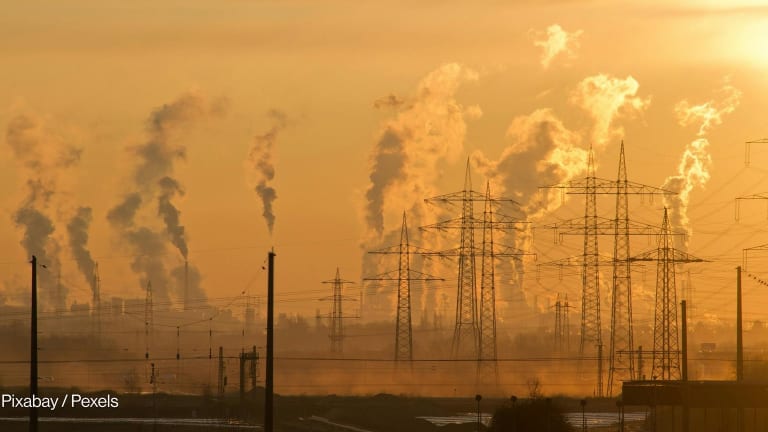
BARCELONA — Water pollution has the power to significantly hold back economic growth and impact a range of development targets, according to a report by the World Bank published this week.
While there is a pervasive idea that countries can first grow their economy, and then clean up the pollution once they are wealthier, the findings suggest that is often not the case. The “costs of pollution act as a headwind against economic growth,” explained Jennifer Sara, the bank’s water practice global director.
“Given uncertainty about safe thresholds for water quality parameters in drinking water, prevention is the safest course of action.”
— Jennifer Sara, water practice global director, World BankThe report looked at the impact of water quality across the Sustainable Development Goals. Using data gathered from monitoring stations and remote sensing technology, it found that a lack of clean water can impede economic progress by impacting health, agriculture, and ecosystems.
But with many harmful pollutants not visible, uncertainty about the impacts, and a lack of monitoring, the report describes the situation as an “invisible crisis.”
“There exists a great need to increase monitoring of water quality around the world, and to make this information available and accessible to the public,” Sara said.
Water supplies can be contaminated with bacteria, sewage, chemicals, and plastics that affect its oxygen level.

According to the World Health Organization, 2 billion people access drinking water from a source contaminated with feces. This can cause diseases such as cholera, typhoid, and polio, and impede a person’s ability to work.
But there are many other culprits. For example, the fertilizer nitrogen, which is often found in bodies of water, can stunt a child’s growth by up to 19%, according to the report. Meanwhile, saline damages enough crops annually that they could otherwise feed 170 million people each day.
More on water and sanitation
► Why Nigeria's campaign to end open defecation is failing
► Water scarcity poses 'fundamental risk to stability,' new report finds
While industrializing low-income countries may be most likely to experience heavy water pollution, there is no single region that is unaffected, Sara said. The report states that middle-income countries could see an even bigger impact on their economy given their increased industrial activity while high-income countries are also at risk as a result of pollutants from microplastics and pharmaceuticals.
Dr. Virginia Newton-Lewis, senior policy analyst at WaterAid, said that water quality is a key part of achieving water security. “It currently receives far less attention than other water issues and we need to overcome inertia and low awareness of the impacts it is having on health,” she said.
While Neil Jeffery, CEO of nonprofit organization Water & Sanitation for the Urban Poor, called for governments to drive higher standards of water management through effective regulation, Sara believes it is monitoring and enforcement of existing regulations that is key. She suggested that new technologies such as remote sensing and public blockchain could play a role in improving monitoring.
But prevention is most important, she added: “Given uncertainty about safe thresholds for water quality parameters in drinking water, prevention is the safest course of action, and for certain ranges of certain pollutants it is also much cheaper than treating water after it has been despoiled.”
The report also recommends treating 100% of drinking water, ensuring polluters take on the costs of water pollution, providing incentives for private investment in water treatment infrastructure, and educating citizens.
“Solving the problems of water quality will require efforts on behalf of governments, industry, scientists, and the development community alike,” Sara said.
Search for articles
Most Read
- 1
- 2
- 3
- 4
- 5








